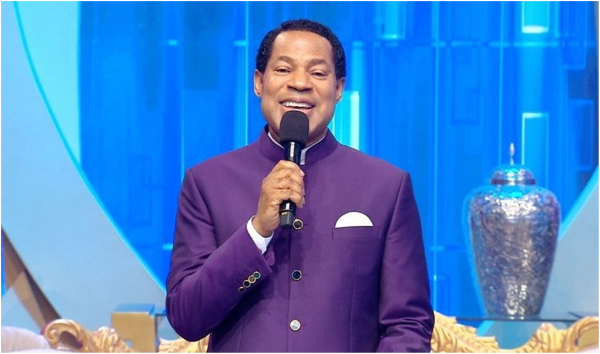Pastor Chris Oyakhilome’s critique of the music industry’s relationship with the church unveils a complex dynamic of exploitation, misplaced priorities, and spiritual compromise. He argues that for decades, the church has served as an unwitting launchpad for musicians who leverage its resources and platforms for personal gain, often abandoning their spiritual roots for the allure of secular success. This perceived betrayal not only deprives the church of potential talent and contributions but also introduces a risk of negative influences seeping back into the Christian community.
Oyakhilome’s assertion centers on the observation that many prominent secular musicians began their careers within the church, honing their skills and building a following within its supportive environment. He views this trajectory as a calculated maneuver, where the church becomes a convenient stepping stone rather than a genuine expression of faith. These artists, he suggests, exploit the church’s inherent trust and goodwill, capitalizing on their acquired musical proficiency and established audience to transition into the more lucrative and glamorous world of secular music. The perceived ingratitude lies in their subsequent detachment from the church, failing to reciprocate the support that nurtured their initial growth. This perceived lack of reciprocity fuels Oyakhilome’s disappointment, painting a picture of a one-sided relationship where the church invests heavily in individuals who ultimately prioritize personal ambition over spiritual commitment.
The pastor’s concerns extend beyond the financial implications of this perceived exploitation. He voices a deeper apprehension about the potential for spiritual corruption within the church. He argues that artists who leave for the secular music industry often return with values and influences that contradict Christian principles. This “boomerang effect” can subtly undermine the church’s spiritual foundation, introducing worldly ideologies and practices that clash with its core beliefs. This, according to Oyakhilome, poses a significant threat to the integrity and purity of the church’s message and mission. The secular music world, often associated with materialism, individualism, and moral ambiguity, becomes a source of contamination, potentially swaying congregants and diluting the church’s spiritual focus.
Oyakhilome’s warning extends to church leadership, particularly pastors responsible for appointing individuals to key ministry roles, especially in music. He cautions against entrusting these positions to individuals driven by ulterior motives, emphasizing the importance of discerning genuine spiritual commitment from opportunistic ambition. He portrays Satan as a cunning manipulator who inspires individuals to exploit the church for personal gain, using their positions of influence to further their own agendas rather than serving the spiritual needs of the congregation. This warning underscores the importance of spiritual discernment within church leadership, urging pastors to exercise caution and prioritize spiritual integrity over talent or charisma when appointing individuals to positions of influence.
The potential consequences of overlooking this warning, according to Oyakhilome, are dire. He suggests that placing individuals with hidden agendas in positions of authority can lead to the erosion of the church’s values, the misallocation of resources, and the potential for spiritual manipulation within the congregation. The church, in this scenario, becomes vulnerable to internal corruption, its resources diverted towards personal gain rather than fulfilling its spiritual mandate. The trust placed in leadership becomes broken, potentially leading to disillusionment and spiritual disengagement among congregants. This emphasizes the need for vigilance and accountability within church structures, ensuring that those in positions of authority are genuinely committed to serving God and the community rather than exploiting their position for personal benefit.
In essence, Oyakhilome’s critique calls for a deeper reflection on the relationship between the church and the music industry, urging a more discerning approach to nurturing and supporting aspiring musicians within the Christian community. He emphasizes the importance of prioritizing spiritual integrity and genuine commitment over talent and ambition, warning against the potential for exploitation and the subsequent erosion of the church’s core values. His message serves as a cautionary tale, urging church leaders and congregants alike to be vigilant against those who might seek to use the church as a stepping stone for personal gain, ultimately compromising the spiritual integrity and mission of the Christian community. The call is for a renewed focus on spiritual discernment, ensuring that the church remains a beacon of faith and a source of spiritual nourishment, rather than a platform for personal ambition and worldly pursuits.














